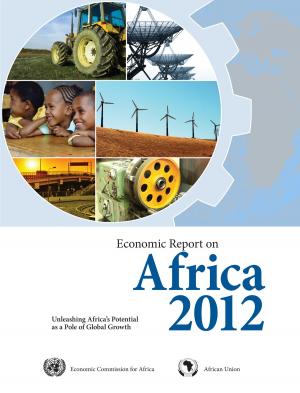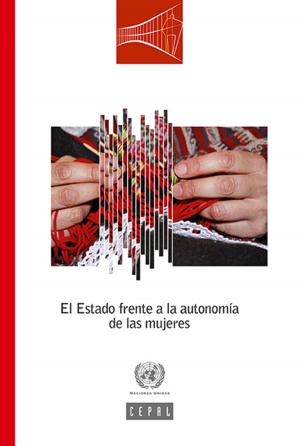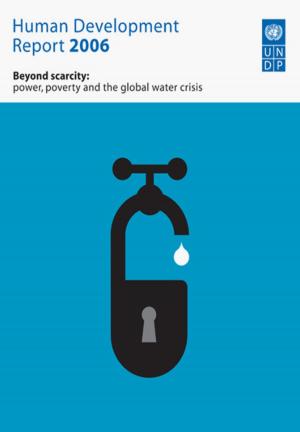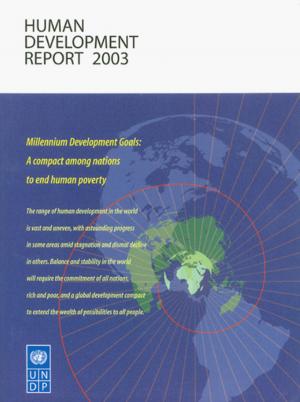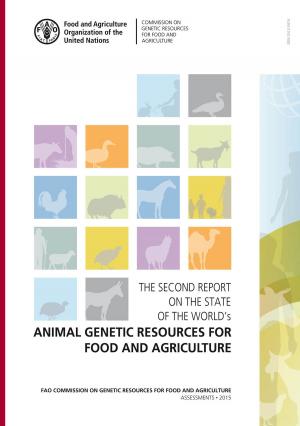Evaluation of United Nations Development Programme's Contribution at the Regional Level to Development and Corporate Results
| Author: | United Nations | ISBN: | 9789210547390 |
| Publisher: | United Nations | Publication: | February 10, 2012 |
| Imprint: | Language: | English |
| Author: | United Nations |
| ISBN: | 9789210547390 |
| Publisher: | United Nations |
| Publication: | February 10, 2012 |
| Imprint: | |
| Language: | English |
In an increasing inter-connected and inter-dependent world. Regional cooperation has immense potential Countries are collaborating to address challenges that cannot be addressed individually and on regional public goods. New forms of cooperation are taking place with the emergence of new regional and subregional groupings. UNDP, since its inception, has supported regional cooperation through its regional programmes and engagement with regional bodies. UNDP itself is structured along regional lines with five regional bureaux and has also established a presence in all five regions through regional service centres. As the entirety of UNDP work at the regional level has not been evaluated. As countries are seeking quicker support and concrete results, and nurturing new forms of partnership in development, UNDPs significant investment at the regional level needs to be justified and built on lessons learned. Assessing the regional dimension of UNDP work and contribution is thus timely and critical. The evaluation concluded that UNDP regional programmes have made significant and long-standing development contributions. They promoted cooperation among countries in building regional and national institutions as well as addressing cross-border and common challenges. The regional service centres have provided useful and much-appreciated technical support to country offices. However, in all regions, the contribution to results has been affected by fragmentation of regional programmes, insufficient linkages with national programmes, and time-frames that have. UNDP has yet to develop an explicit, holistic and strategic business model that addresses critical capacity in country offices, the provision of supplementary technical support to country offices, management of the regional programme, support to UN coordination at the regional level, and the grounding of corporate positioning in regional knowledge. As a result, the core recommendation of the evaluation is that the organization should develop a strategic corporate business model that covers headquarters/global, regional and country levels.
In an increasing inter-connected and inter-dependent world. Regional cooperation has immense potential Countries are collaborating to address challenges that cannot be addressed individually and on regional public goods. New forms of cooperation are taking place with the emergence of new regional and subregional groupings. UNDP, since its inception, has supported regional cooperation through its regional programmes and engagement with regional bodies. UNDP itself is structured along regional lines with five regional bureaux and has also established a presence in all five regions through regional service centres. As the entirety of UNDP work at the regional level has not been evaluated. As countries are seeking quicker support and concrete results, and nurturing new forms of partnership in development, UNDPs significant investment at the regional level needs to be justified and built on lessons learned. Assessing the regional dimension of UNDP work and contribution is thus timely and critical. The evaluation concluded that UNDP regional programmes have made significant and long-standing development contributions. They promoted cooperation among countries in building regional and national institutions as well as addressing cross-border and common challenges. The regional service centres have provided useful and much-appreciated technical support to country offices. However, in all regions, the contribution to results has been affected by fragmentation of regional programmes, insufficient linkages with national programmes, and time-frames that have. UNDP has yet to develop an explicit, holistic and strategic business model that addresses critical capacity in country offices, the provision of supplementary technical support to country offices, management of the regional programme, support to UN coordination at the regional level, and the grounding of corporate positioning in regional knowledge. As a result, the core recommendation of the evaluation is that the organization should develop a strategic corporate business model that covers headquarters/global, regional and country levels.


